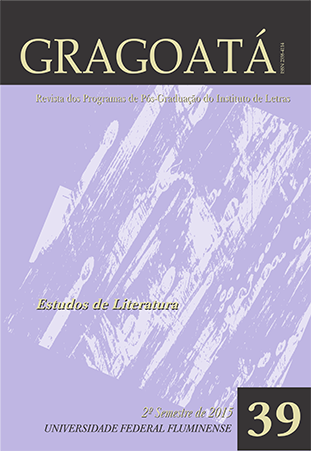‘PARADISE LOST’: EPISODIC ORDERING AND THE FREE WILL CONTROVERSY
DOI:
https://doi.org/10.22409/gragoata.v20i39.33364Keywords:
John Milton, Paradise Lost, free will, divine foreknowledgeAbstract
John Milton’s (1608-74) international fame is due to his epic poem, Paradise Lost (1667; 2nd.ed.1674). The poem’s explicit goal is to “justify the ways of God to men” (01.26), that is: to promote a justification of the Fall, which would hold humanity responsible for its own demise while redeeming Divine Providence and confirming its mercy. This article proposes that Paradise Lost be conceived as a thought experiment: Milton’s strategy would be to manipulate or insert episodes in the possible gaps found in its underlying biblical narrative, so that they would fulfill the necessary conditions for the characters to be shown as conscious and satisfactorily rational agents, who could be held accountable for their unhappy choices. Milton would have thus offered a narrative solution for a philosophical problem.
Downloads
Downloads
Published
How to Cite
Issue
Section
License
Authors who publish in Gragoatá agree to the following terms:
The authors retain the rights and give the journal the right to the first publication, simultaneously subject to a Creative Commons license CC-BY-NC 4.0, which allows sharing by third parties with due mention to the author and the first publication by Gragoatá.
Authors may enter into additional and separate contractual arrangements for the non-exclusive distribution of the published version of the work (for example, posting it in an institutional repository or publishing it in a book), with recognition of its initial publication in Gragoatá.

Gragoatá is licensed under a Creative Commons - Attribution-NonCommercial 4.0 International.











